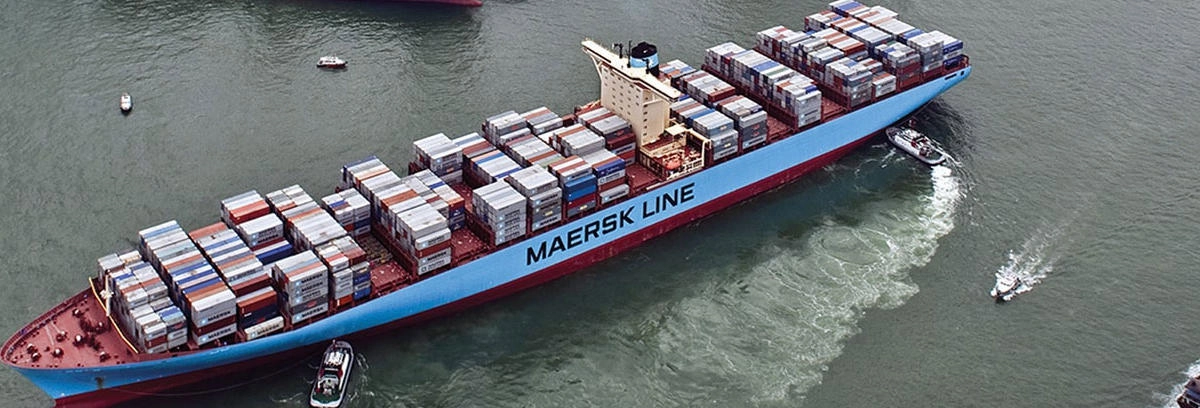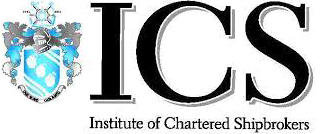MScInternational Shipping and Logistics
Apply direct
- 1 year full-time
- 2 years part-time
Why study an international shipping and logistics master's degree at Solent University
Get a head start in the exciting, global industry of shipping and logistics - gain the skills and knowledge sought after by employers.
- 0%of our master’s graduates progress to high-skilled careers or further study (Graduate Outcomes Survey 22/23, FT taught master's)
- £0kmedian salary for our master’s graduates (Graduate Outcomes Survey 2022/23, taught master's)
- Study in the heart of Southampton, a major hub in the UK and European maritime and shipping industry.
- The course is designed with input from maritime industry organisations, ensuring course content is tailored to deliver the specialised industry knowledge and skills that the shipping and logistics industries are looking for.
- You may have the opportunity for UK and international field trips. Past students have visited key maritime organisations, such as the ports of Southampton, Antwerp, and Rotterdam; the International Maritime Organization; and the Baltic Exchange.
- Solent is leading the way in maritime research. Our three maritime research groups cover topics including gender dynamics at sea, shipping hybridisation, cleaner energy and low-carbon technologies for port use, and more.
- Our annual maritime conference develops professional connections, bringing Solent alumni and senior professionals from the industry on campus to talk to students about their early career experiences, help develop employability, and more.
- Our Warsash Maritime School has over 80 years' history of maritime education and an international reputation for quality.
Any questions?
Contact international admissions
Email: Call:Course overview
Over 90 per cent of the world’s goods are transported by sea, making shipping and shipping logistics a vital part of world trade. Modern manufacturing requires just-in-time logistics, and the transport of manufactured goods has evolved into an integrated, multimodal, door-to-door service.
Solent’s intellectually challenging international shipping and logistics master’s degree was designed to equip students with the skills and knowledge sought after by employers within this dynamic industry. The modules studied during the course aim to enable students to develop a detailed understanding of the operations and strategies of shipping as a transport mode within the context of international multimodal logistics.
Accreditations
Accredited by:

Accredited by:

This course is for
This Institute of Chartered Shipbrokers and Chartered Institute of Logistics and Transport-accredited master’s degree is suited to maritime professionals who wish to progress their shipping and logistics career, or for those with a business background who are looking to move into the global shipping or logistics industries.
What this course leads to
Our graduates are well equipped for careers in maritime business, logistics and/or supply chain management, either in the UK or internationally. Typical roles could include:
Meet the team
You'll be taught by both academics and a highly skilled team with wide-ranging experience in the maritime industry
The University cannot guarantee any particular members of staff will teach specific aspects of the course in the future, but will endeavour to ensure the teaching team maintains their balance of experience and qualifications.
Facilities
Students study in the heart of Southampton - a major hub in the UK and European maritime and shipping industry. Our vibrant campus brings state-of-the-art facilities to enhance your learning and elevate your student experience. Our award-winning teaching building, The Spark is centred around students and offers a stimulating study environment with flexible learning spaces.
Away from studying, why not try out the gyms, fitness studios and sports halls in our £28 million Sports Complex, or watch a blockbuster film at our student-run cinema with Dolby Atmos audio.
What you'll study
Core modules
Maritime Business and Strategy
This module blends the complementary subjects of strategic management and economics in the context of maritime and logistics organisations and the wider market environment.
International Maritime Law
This module provides the opportunity for the student to critically evaluate the development, aims and applications of international maritime law.
Economics of Global Trade
This module holds the key to international maritime management studies; as economics is the pivot on which global trade and shipping revolves.
Maritime Digital Technologies
The module provides you with the skills and knowledge necessary in today’s complex business digital environment; providing you with theoretical and practical understanding of the benefits associated risk to enable you to better manage digital technologies.
Research Methods and Proposal
The module provides the opportunity to develop and carry out research applied to an area relevant to the programme of study and in an area of personal interest to the student and which is also relevant to a student’s future career.
Maritime Logistics and Supply Chain
This module focuses on the global supply chain and logistics networks and the shipping industry’s role within it. You'll study the main concepts and principles that are supply chain management and critically review a range of industry examples to better comprehend the opportunities and challenges faced by maritime organisations.
Economics of Shipping and Ports
In this module, you'll gain a comprehensive understanding of the shipping economics issues involved in international sea-borne trade. You'll experience an intellectually stimulating curriculum which inspires you to learn for life. Freight supply and demand are examined, along with the national and international port developments and competition, plus the instruments that govern them.
Sustainable Vessel Operations
Sustainability has become the driving force for change across the globe and in every industry. This module will investigate ways in which the shipping industry aims to align with the UN Sustainable Development.
Dissertation
Maritime professionals need to be skilled in identifying and analysing problems to lead changes in policy or practices. You will develop these skills by identifying, planning, and implementing research in your chosen area, and analysing and communicating the findings.
Optional modules
Operations Risk Management
This module provides you with a practical understanding of the principles of risk assessment and risk management. It will enable you to recognise and control risk in maritime operations in ships, port facilities and related maritime businesses.
Demand Driven Logistics
This module explores the issues which are fundamental to any business operation. A demand-driven supply chain is a dynamic model that prioritizes customer demand as the primary driver for decision-making processes, adapting in real-time to ensure supply aligns with upstream demand.
Any questions?
Contact international admissions
Email: Call:Learning resources
The course is taught by a mix of lectures, seminars, simulation and negotiation exercises, and problem-based learning.
There is also a strong emphasis on research and you'll complete a thesis under supervision.

Learn transferable skills
You will be supported to develop a range of transferable skills throughout the course. This includes programming, project management, problem-solving, analytical skills, technical writing, teamwork, communication and presentation skills.
These transferable skills empower you to work in a range of different industries after graduation. The course will also equip you with research and academic skills helping those who wish to pursue a PhD or an academic career.

Why choose a career in shipping and logistics?
The industry is vast, with 120 commercial cargo-handling ports in the UK alone, the second largest number in Europe. Globally, ports and logistics employ over 15 million people, with the logistics industry worldwide expected to exceed 15 billion dollars by 2027.
Taught by both academics and a highly skilled team with wide-ranging experience in the maritime industry, the course has been designed in conjunction with key maritime industry organisations to enable students to graduate with the necessary knowledge and work-based skills that will enhance their career prospects in this buoyant industry.
Solent Careers
The Solent Careers team is committed to getting students into great careers.
While you are studying, the team can help you with finding work experience or placements, link you with a mentor, check your CV, or offer one-to-one guidance.
We also have graduate job opportunities just for Solent graduates.
Find out more
£35k
median salary for our master’s graduates
(Graduate Outcomes Survey 2022/23, FT/PT taught master's)
Alumni network
As part of our global alumni community, you can take advantage of a range of benefits.
Whether it's been days or decades since you left us, or you're soon to don your cap and gown, things are constantly changing at Solent. We're always innovating, but we're also immensely proud of our heritage. And that means you.
Find out more
20% alumni discount
Solent alumni are eligible for a 20% reduction of tuition fees if returning to study a postgraduate course.
Tuition fees
The tuition fees for the 2026/27 academic year are:
- UK and Channel Island full-time fees: £10,400 per year
- International full-time fees: £18,350 per year
For further information, please visit our tuition fees page.
Extra course costs
While most course costs are covered by your tuition fees, some essential resources and optional extras may need to be paid for separately. These additional costs are listed below. For advice on budgeting and managing your money, please contact student.funding@solent.ac.uk.

20% alumni discount
Solent alumni are eligible for a 20% reduction of tuition fees if returning to study a postgraduate course.
Bursaries, scholarships and financial support
Solent University offers a range of bursaries and scholarships that provide financial assistance or waive fees for tuition or accommodation. Each bursary or scholarship has specific eligibility criteria. Check out our bursaries and scholarships pages to find out more.
Cost of living support
At Solent, we understand that the cost of living crisis may be of some concern. To help, we've put together some detailed information to show what support is available and how to make your money go further.
Graduation costs
There is no charge to attend graduation, but you will be required to pay for the rental of your academic gown (approximately £45 per graduate, depending on your award). You may also wish to purchase official photography packages, which range in price from £15 to £200+. Graduation is not compulsory, so if you prefer to have your award sent to you, there is no cost. Extra guest tickets will go on sale after results publication and will be sold on a first-come-first-served basis. The cost per ticket is currently £20. Please note, we do not guarantee there will be any extra tickets available to purchase.
Any questions?
Contact international admissions
Email: Call:Entry requirements
Please select an option below:
Key entry requirements
Honours degree at 2:2 or higher in maritime studies or shipping
- An ordinary degree or HND in a technical or business discipline, combined with appropriate professional experience.
- Equivalent qualifications may also be considered – contact the admissions office for further information.
- Part-time study is not available for overseas students requiring a student visa.
Key entry requirements
If you are applying from outside the UK, find information about entry requirements, visas and agents for your country here.
For further information about UK, EU and international qualifications, please contact admissions.
Key entry requirements
If you are applying from outside the UK, find information about entry requirements, visas and agents for your country here.
For further information about UK, EU and international qualifications, please contact admissions.
Note to all international students requiring a visa
All international applicants need to be aware that the English language requirements to attend Solent University, and the English language requirements to obtain a visa from the Home Office, may be different. This means that if you meet the Solent University language requirement to gain a place on the course, you may still have to meet additional requirements to be granted with a visa by the Home Office.
We strongly advise all applicants to visit the Home Office website which outlines all the requirements for a successful visa application and to take a look at our course entry statement document.
Your application checklist
Applications for postgraduate courses can be made at any time prior to the start of the course. However, we strongly recommend you apply at your earliest convenience.
Please ensure you upload the following mandatory documents with your application.- Two academic references.
- Certified transcripts of qualifications, including English language proficiency if non-UK student.
- Copy of passport.
- Copy of current visa (if applicable).
- A personal statement.
- Employer sponsor form, where appropriate.
Language requirements
Applicants who do not have English as their first language will be required to demonstrate an approved level of proficiency in the use of the English language. The agreed minimum requirements for this course are:
- IELTS minimum 6.0 overall with a minimum of 5.5 in each individual component
- Duolingo English Language Test - 115 overall with minimum of 100 in each component
or equivalent.
TOEFL IBT tests taken prior to 21 January 2026
- Minimum overall score of 80 with a minimum of 20 in each individual component.
TOEFL IBT tests taken from 21 January 2026
- Minimum overall score of 5.
Qualifications are checked before enrolment, and international students must bring their original certificates or certified copies when coming to study at the University.
Pre-Sessional English programme
The University also offers a pre-sessional English programme for international students who wish to improve their level of English before starting a degree course.
Study options
Full-time September start
Study at Solent full-time, beginning in September. This option lets you complete your qualification in the shortest possible time by taking a full study load each semester.
Part-time September start
Start your studies in September and spread your learning over a longer period. Ideal if you’re balancing study with work or other commitments.
Any questions?
Contact international admissions
Email: Call:Make your application
- 1 year full-time
- 2 years part-time













